Booty Boot Camp
If you feel your "rear view" needs a makeover, the right fitness routine can provide a natural lift. Can you achieve the "perfect" Brazilian beach butt seen on TV? That depends partly on your body type and genetics, but most everyone can shape up to look better in jeans. Ready to take a crack at it? The following pictures show you the moves.
Behind It All: The Gluteal Muscles
The shape of the buttocks is defined by muscles known as the gluteus maximus, gluteus medius, and gluteus minimus (hidden under other muscles), as well as the overlying fat. Walking, running, and climbing all work the glutes. Strength training that targets these muscles can help develop a tighter, more rounded look. Adding a few butt-busting moves to your routine may be enough to see a difference.Squat and Tone
The squat tops every list of butt-busting exercises. It directly engages the glutes, and you can build bigger musculature by adding weights. The key is to maintain proper alignment.Form: Keep feet parallel, shoulder-width apart. Slowly lower hips as if sitting in an invisible chair; then return to standing. Make sure your knees do not push out in front of your toes. Keep your torso tight and back straight.
Variation: Ball Squat
If you're just starting out, a stability ball can help with balance while you master the form. For each exercise on our list, aim for three sets of 15 repetitions. That's a good start for beginners, says master trainer Dori Ricci, NASM, CPT. Try to do each exercise three times a week.Form: Keep the ball between your low back and a wall. Slowly perform the classic squat. Walk your feet out in front so the knees stay behind your toes.
Forward Lunge
This butt builder also tones the thighs and calves, and it's a pretty good calorie burner, too.Form: Feet parallel, hip-distance apart, take one giant step forward. Lower your body slowly, bending both knees, and return to standing. Repeat on the other side. Bend your knees no farther than 90 degrees, front knee stacked directly over your front ankle. Do not rest your back knee on the ground.
Variation: Backward Lunge
When you step backward into a lunge, it works the glutes a little more intensely and adds variety to your workout. Lunges also help promote hip flexibility and proper alignment, which can suffer when people spend long hours sitting at a desk.Form: Use the same posture as in a forward lunge, but step backward to position the lower leg. Remember not to let the front knee push out in front of your toes.
Variation: Side Lunge
The side lunge directly targets the muscle on the outside of the hips, the glutes, and tones the inner thighs, too.Form: From a wide stance, bend one knee. Keep the shinbone under that knee vertical to the floor. If the knee falls inside the foot, use a shorter stance. Lean forward slightly, but keep your shoulders behind your knees to avoid injury. Choose a hand position that helps with balance.
On the Ball: Leg Lift
Leg lifts done while balancing on an exercise ball will strengthen your shoulders and abs, in addition to your glutes. As you get more fit, try lifting both legs simultaneously for a more challenging, butt-sculpting move.Form: Keep your abs tight and back flat. Squeeze the gluteal muscles tight as you lift one leg. Just a few inches is fine, especially for beginners. Be careful not to engage the muscles of the low back.
On the Ball: Hip Lift
This small movement isolates and works the gluteus maximus, the largest muscle in the body. Be careful not to use the back muscles; the glutes should do the work.Form: Bend the knees 90 degrees, feet together. Squeeze the glutes and slowly move the thighs up off the ball. A small, controlled, 2-inch movement is the goal.
Floor Work: Bridge
This classic is a surprisingly good workout for the glutes, as well as the hamstrings and hips.Form: Begin on your back with your knees bent, feet hip-width apart. Slowly peel your spine off the floor from the tailbone, one vertebra at a time, tightening the glutes and hamstrings. Pause when you create a diagonal line from shoulders to knees. Lower slowly, one vertebra at a time.
Floor Work: Side Leg Raises
This move targets the two smaller muscle groups in the buttocks, the gluteus medius and minimus. Raising the leg just a few inches will work these muscles.Form: Lift the top leg while lying on your side. Keep the hips stacked and the torso still; both knees facing forward. For a variation that works slightly different muscles, you can turn the top leg out from the hip.
Floor Work: Dirty Dog
This butt-building move gained fame in the exercise videos of the 1970s as the "fire hydrant." It targets two of the muscles groups in the buttocks.Form: Keep your knees hip-width apart and your hands directly under your shoulders, elbows straight. Gently stiffen the abs and keep your back in a neutral position with no sagging or arching. Slowly draw one knee up. Rotate the hip to bring the leg toward the torso, then away.
Floor Work: Running Plank
In addition to challenging the gluteal muscles, running plank works the shoulders, hips, and core muscles. Do it quickly to burn calories while building muscle.Form: Engage the abdominal muscles to protect the lower back. Spread your fingers wide to protect the wrists.
Walk the Hills
Walking is a natural, anywhere, no-fuss butt workout. Tackle the hills for maximum gluteal impact — and to burn a few more calories when you're trying to lose excess body fat. On a treadmill, use a 5% to 7% incline to increase the workout.Tone Your Tush With Cardio
In the gym, stair steppers, arc trainers, and elliptical machines are good choices to challenge the glutes while giving your heart and lungs a healthy workout. Inline skating and cycling are other heart-pumping options that tone the tush.Firm Up Without Bulking Up
Some people's muscles rise to a challenge by bulking up. If that's your genetic destiny — and you don't like a pumped up look — focus on aerobic activity over weight training. Don't crank the resistance up too high on an exercise machine. And skip the weights when you do butt-sculpting exercises.Slim Your Assets
Targeted exercises alone are not likely to produce a smaller behind, just a firmer one. For a more dramatic change: watch your diet, burn more calories, and lose weight. That strategy can reduce the fat pad lying over the gluteal muscles, resulting in a tush that's trimmer and tighter.Go for Gluteus Maximus
If bigger is better, you'll want to really challenge the gluteal muscles. Dial up the resistance on a stationary bike or other cardio machine. During strength training, go for more weight, more repetitions, and shorter rest periods between exercises. A high-quality diet is also important in building muscle mass.Can You Shift Your Shape?
There's much talk in beauty magazines about a rounded, "Brazilian-style" butt. Targeted exercises can move a flat behind a little closer to this beauty ideal. But a workout will most likely enhance the shape you have: heart-shaped, pear, bubble, or another. For a dramatic reshaping, after a huge weight loss, for instance, cosmetic surgeons offer implants, lifts, and reshaping.Shapewear for Your Tush
A multitude of undergarments are available now to "separate and lift" your bottom, rein it in with elastic panels, or enhance your rear view with padding. Padded inserts and lifting Spandex panels are available in jeans, too.Dress Your Assets Down
Complement your workout with the right clothing style. Boot-cut and flared jeans balance out the hips and rear for a slimming effect. Long pant legs create the illusion of longer legs and a smaller booty. And back pockets can create amazing illusions. Just beware of super-long back pockets that can make your behind look flat or saggy, instead of showing off the great contours you earned at the gym.Dress Your Assets Up
Skip the peg leg and ankle jeans, popularized in the '80s, which accentuate the hips and make your body look like an ice cream cone with a big, round scoop on top. A better choice to really show off your curves are super-tight pant legs or leggings, along with a tight form-fitting rear panel for that head-turning, Brazilian "butt-lift" style.credit : webmd
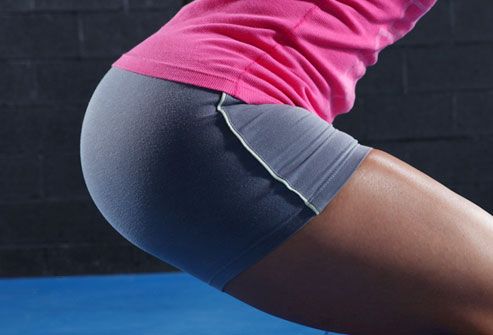
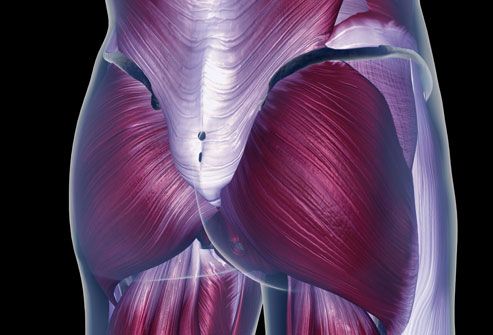
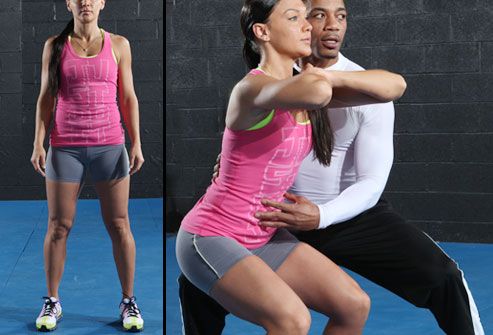
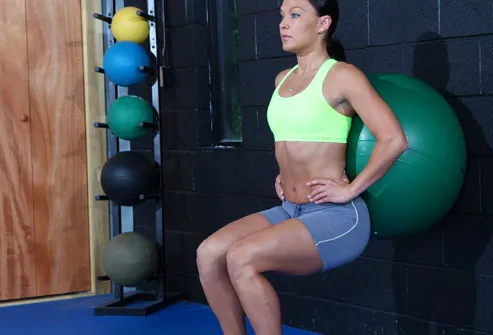
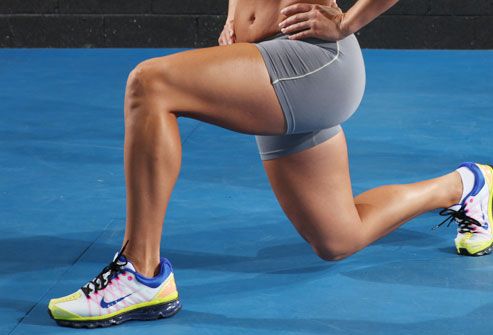
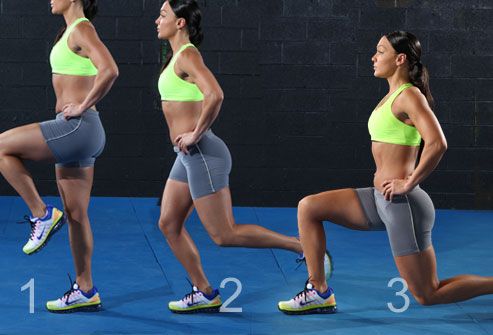
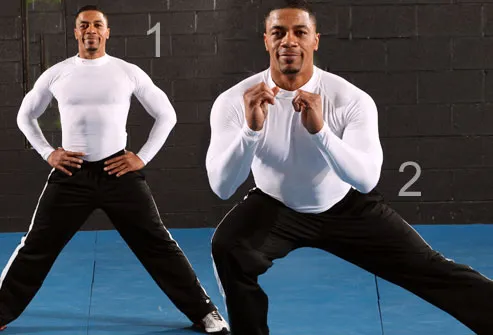
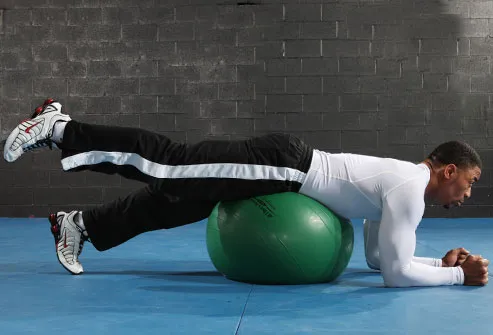
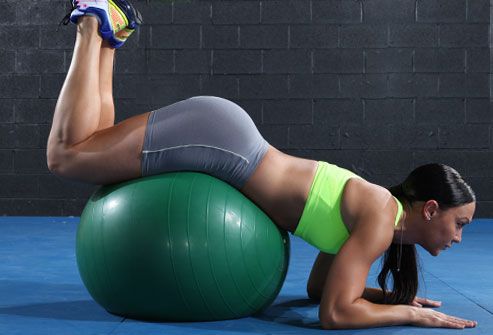


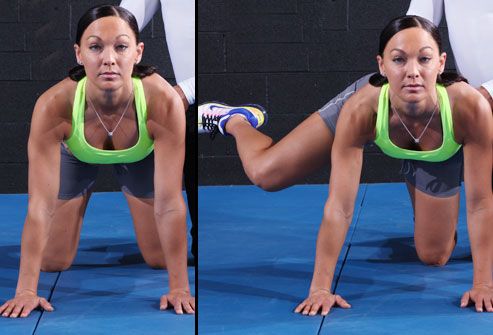
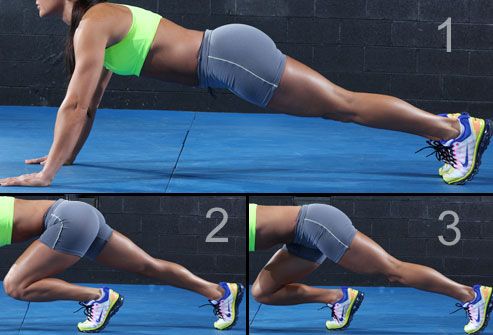
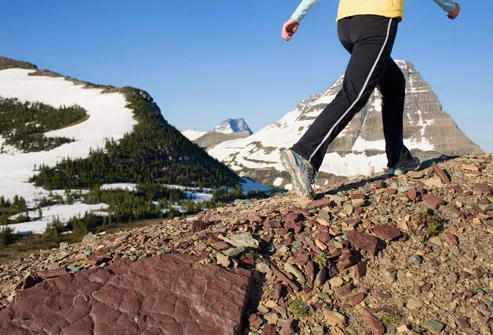
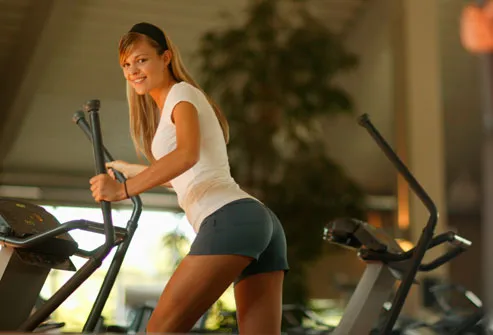
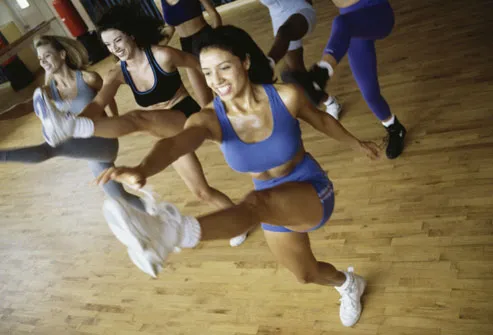

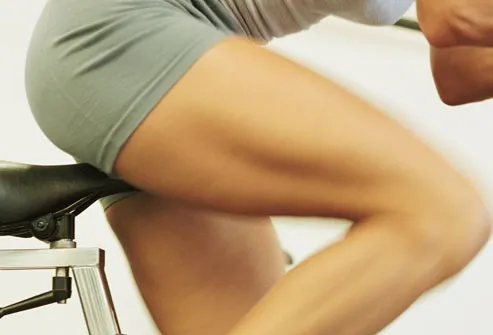

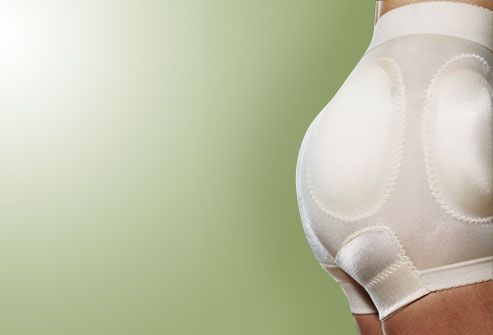
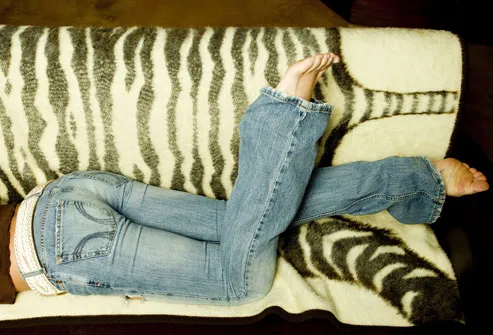

No comments:
Post a Comment